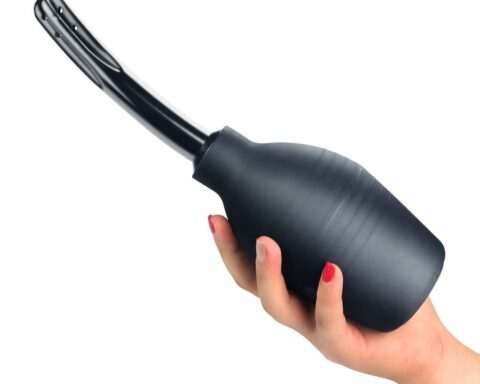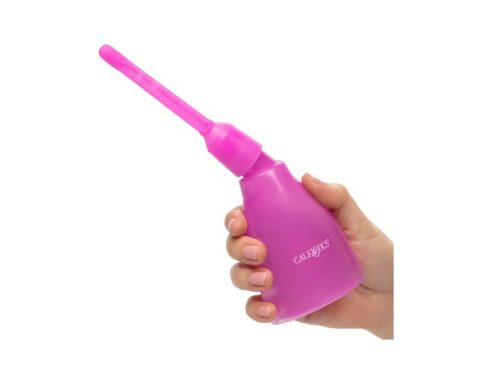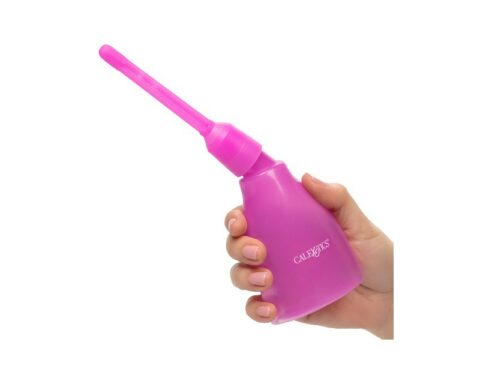While taking enemas may help relieve you of constipation, knowing their risks will help you weigh if you should continue using them or switch to healthy and less risky options.
For hundreds of years, doctors and medical practitioners have prescribed enemas, the rectal injections of fluids meant to fasten bowel emptying or cleanse the bowel. Although enemas are commonly taken for constipation, they have been widely used to clear the bowel before specific surgical operations or diagnostic tests. This article helps you understand everything you need to know about enemas, including what they are, the various types available, the possible benefits and risks of taking them, and the healthy and less risky alternatives you could switch to.
What are enemas, and why are they taken?
Enemas are rectal injections or rectal laxatives taken to release the hard stool characteristic of constipation and is difficult to produce. These rectal injections work by softening the stools and making them leave in a short period. Apart from this, doctors prescribe enemas when you are due for specific surgical procedures or diagnostic tests to flush out the colon so that stool does not get into the way and the risk of infection is also reduced. Other uses of enemas suggested by enema advocates include relieving stress, fatigue, depression, irritability, and allergies, although most are not scientifically backed up.
Types of enemas
There are two types of enemas, including;
Cleansing enemas
These are taken through rectal injections and are meant to last for a few minutes before flushing out the colon to produce loose matter, stool, and fluids. Examples of cleansing enemas include;
- Water or saline enema, which is less irritable than other options and works by imitating the sodium-potassium fluid balance in the body to promote colon expansion and subsequent defecation.
- Lemon juice, when mixed with warm water, is believed to help cleanse the large intestines to promote defecation while balancing the body’s pH.
- Epsom salt is almost the same as water or saline enema, only that it is rich in magnesium and is more effective at promoting defecation by relaxing bowel movements.
- Apple cider vinegar, when mixed with filtered water, could help expand colon muscles while exerting antiviral, antiseptic, and antibacterial effects on the digestive system.
Retention enemas
Unlike cleansing enemas, retention enemas are water or oil-based and take a bit longer to ease bowel movements and soften the stool, making defecation easier. They take a minimum of 15 minutes to exert an effect and include;
- Herbal enemas made from ginger, catnip tea, turmeric, and garlic are believed to help promote colon relaxation, besides fighting inflammation and infections.
- Mineral oils also make good retention enemas that work by holding wastes in the colon, lubricating, and sealing them with water while trying to eliminate them.
- Coffee enemas, popularized by physician Max Gerson, are widely purported to remove bile from the stomach to promote waste lubrication. They are prepared by mixing brewed and caffeinated coffee with water, a recipe Gerson widely used to ease constipation, primarily among cancer patients he was treating.
- Probiotic enemas, including Lactobacillus reuteri, have been mixed with water and used to ease constipation among children. They are believed to promote gut microbiota, especially in people with ulcerative colitis.
Potential health benefits of enema
Enemas are taken for different benefits, some of which are proved while others are merely purported. For instance, relieving people of constipation is a proven benefit of taking enemas, although some use the laxative for other reasons. Examples of purported health benefits of enemas include;
- Weight loss; some enema advocates have led people to believe that it can help people lose weight, although the mechanism goes unstated.
- Boosting energy levels; it is widely believed that taking an enema relieves people of depression and mental disturbance, increasing their energy levels.
- Cleansing skin conditions; some enema advocates claim that the injections remove toxins from the body, bettering users’ skin conditions.
- Boosting immunity; it is also claimed that taking an enema removes toxins that would otherwise compromise one’s immunity.
As seen above, the only medically and scientifically backed up enema use is to relieve people of constipation, despite the many purported benefits. Many other benefits are only based on anecdotal evidence and are therefore highly discouraged. Still, even with the medical reasons for relieving constipation, enema use, especially when people self-administer them at home, comes with numerous risks discussed below.
Potential risks of taking enema
Although enema can help relieve you of prolonged constipation, the benefit does not come with potential risks, including;
- Intestinal puncture, ultimately causing bleeding and increased risk of infections
- Rectal necrosis, especially when people take more than one sodium phosphate enemas and when they are used in children below 2 years
- Kidney and heart problems may result due to prolonged rectal necrosis
- Colon blockage, especially caused by barium impaction after prolonged use of barium enemas
- Dehydration, especially when you take other laxatives and follow them with enemas
- Interference of the natural fluid balanced, closely associated with Epsom salt, and can even result in fatality
- Self-administration increases the risk of infection when dirty tools are used in home settings
- Coffee, lemon juice, and apple cider vinegar enemas, due to their acidity, nay cause colon and rectal inflammation, infection, and death in the long run
Safer alternatives to enemas
Based on the side effects addressed above, using enemas may not be worthwhile in the long run. The good news is that there are less risky options you could turn to if you want to promote bowel regularity and easy defecation. Such options include;
- Staying well-hydrated by drinking enough water
- Taking caffeinated coffee as it is known to ease bowel movements
- Using over-the-counter laxatives, with magnesium being common
- Regularly exercising, e.g., biking, walking, or hiking
- Boosting your roughage and fiber intake by featuring vegetables, seeds, nuts, and fruits more
Conclusion
Enemas are rectal injections taken to relieve people of constipation. Sometimes, before a diagnostic test or a surgical operation, they could be prescribed to cleanse the colon to lower infection risk and prevent stool from finding its way during the procedures. Despite the many purported benefits of enemas, their usage can be risky and cause an imbalance in natural processes, dehydration, rectal necrosis, infection, and fatality. The good news is that there are healthier alternatives, including drinking water or caffeinated coffee, exercising, or boosting roughage intake.
- Our Big Kitchen’ (OBK) is a non-profit organization located in Sydney, Australia - April 10, 2023
- Duos CBD, a hemp product E-commerce website - April 10, 2023
- SOFA SPOONING SEX POSITION - April 7, 2023









